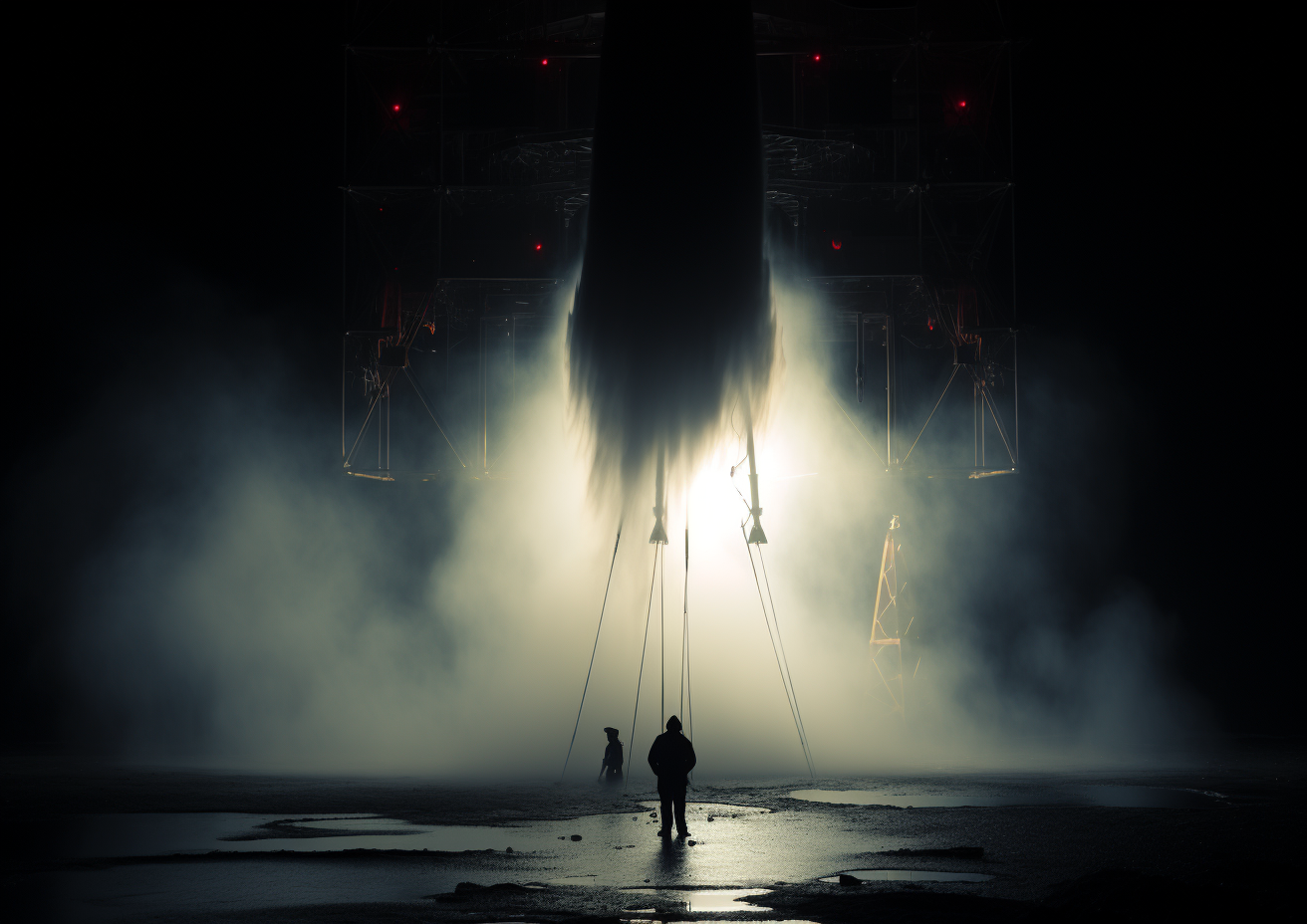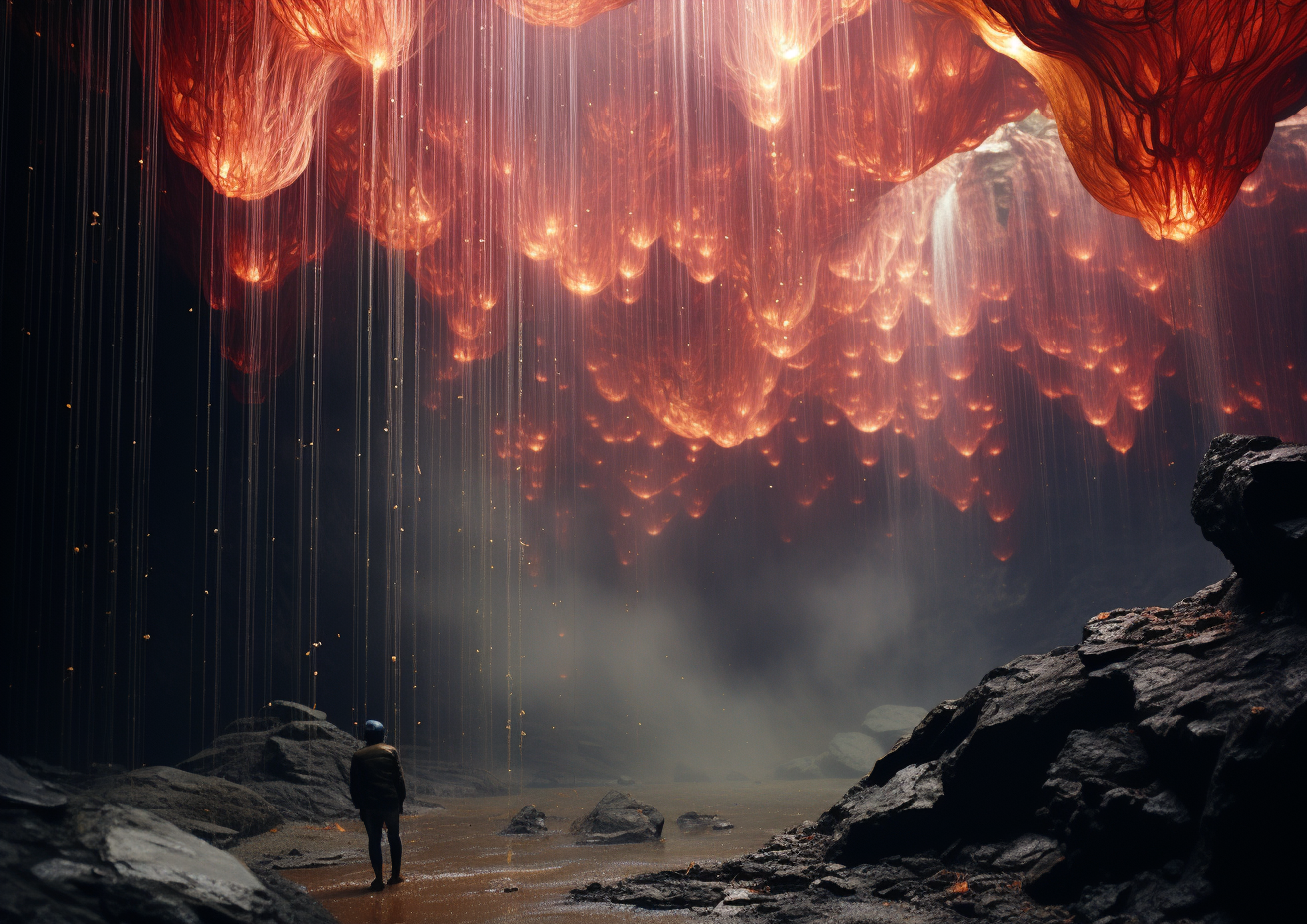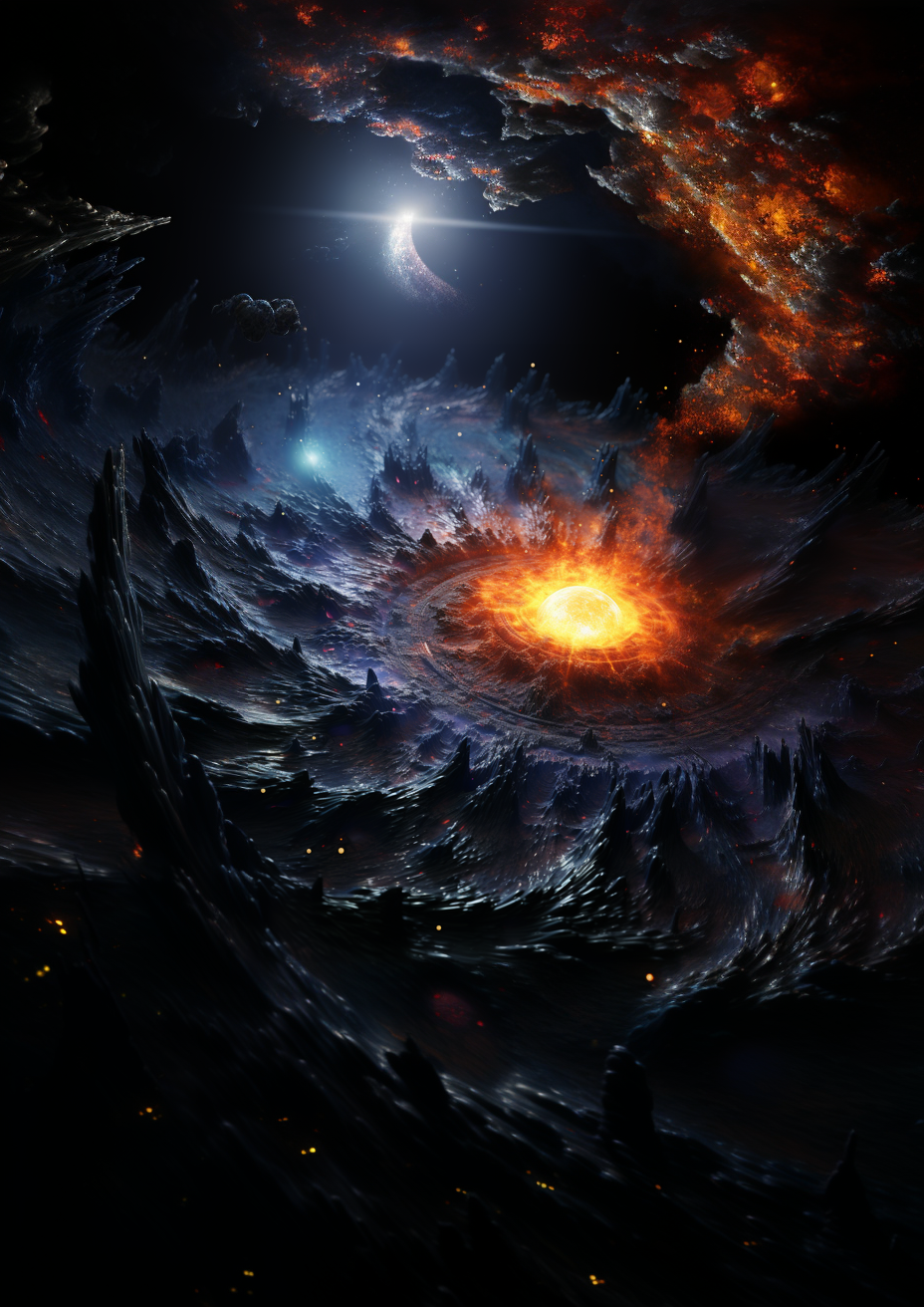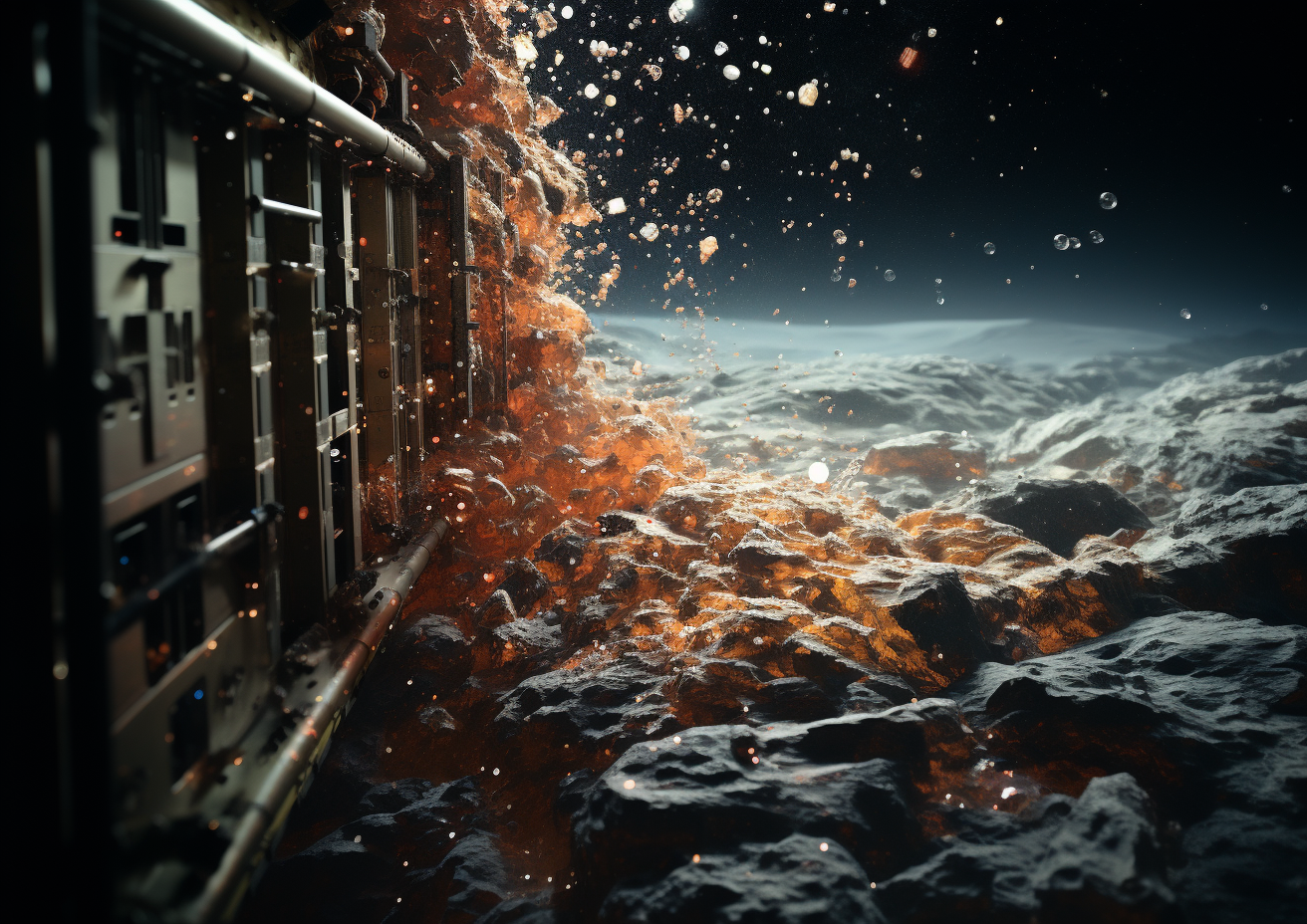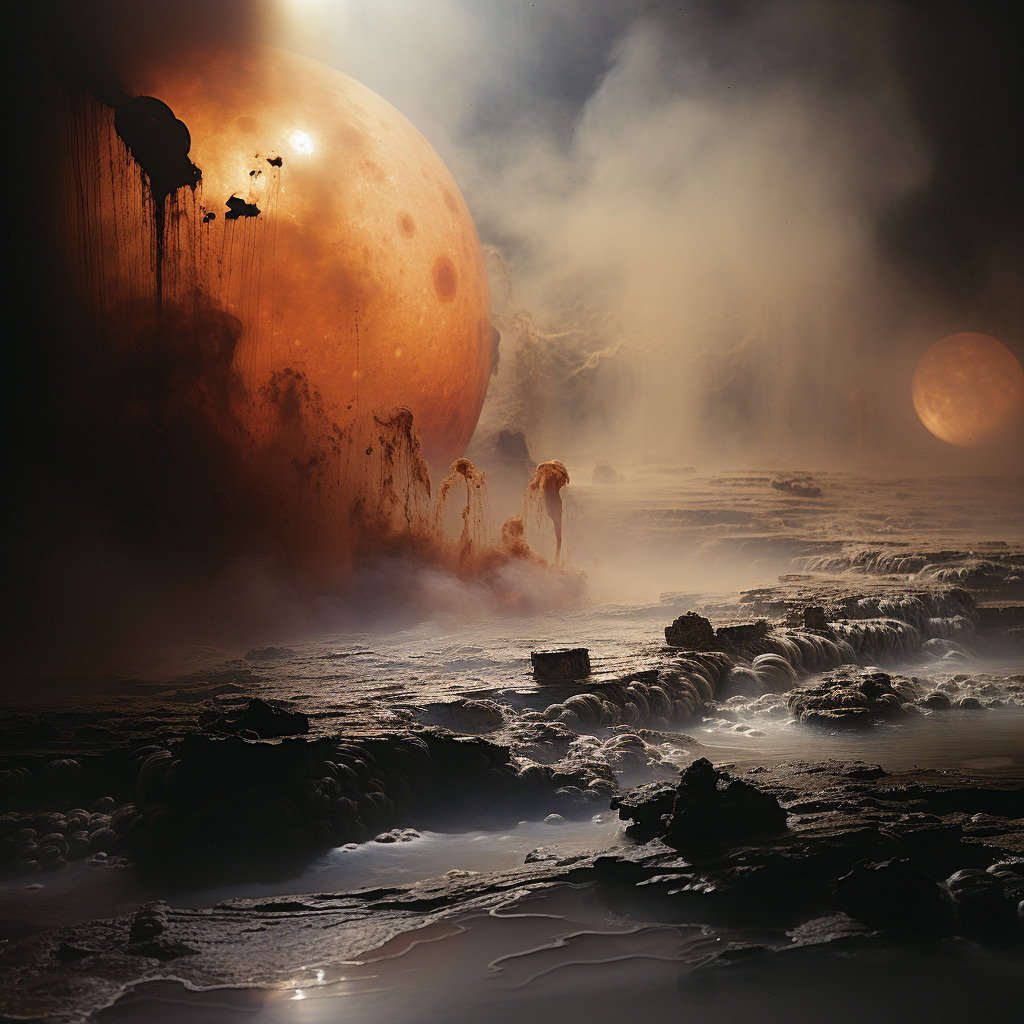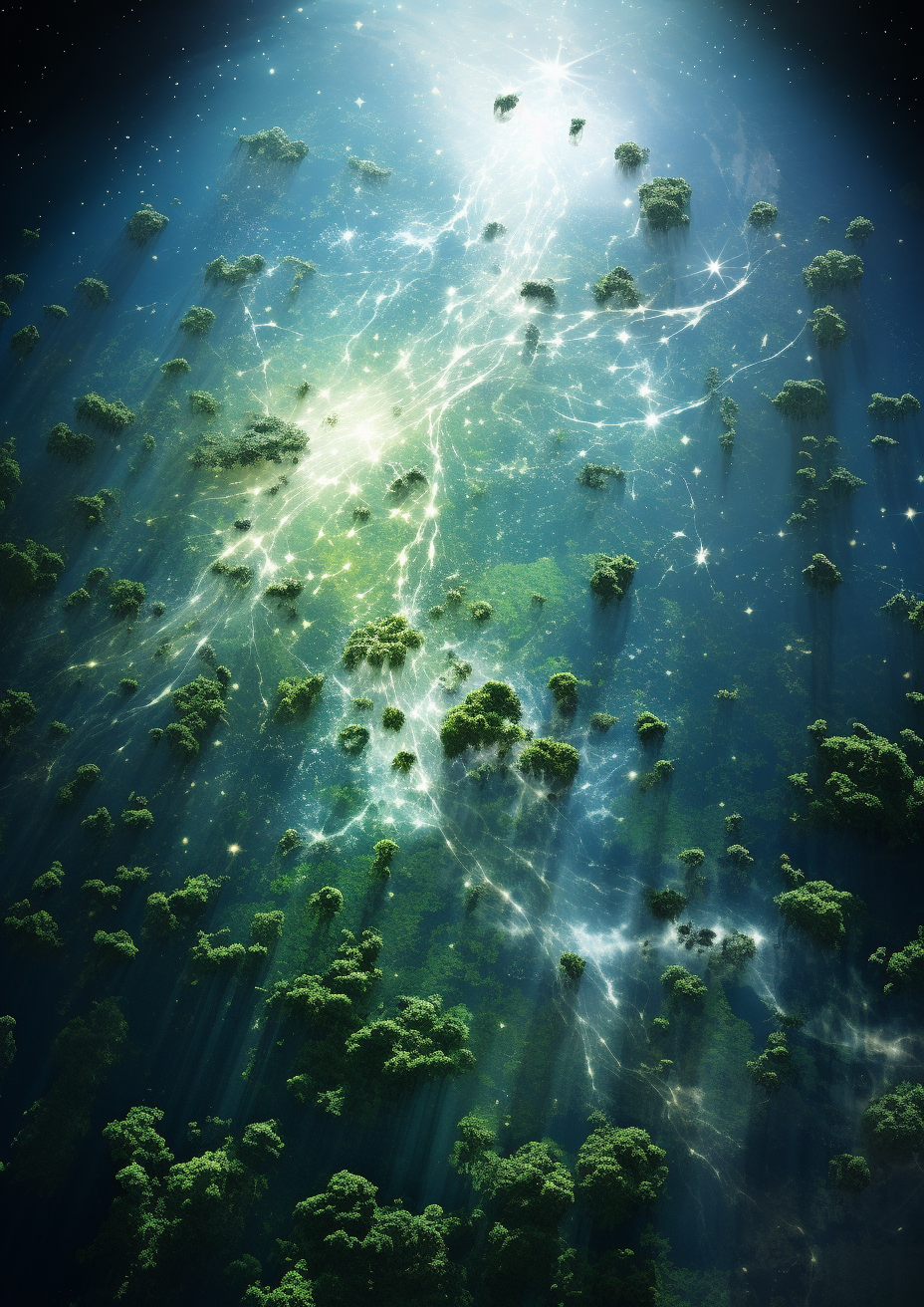22 / Orbiting Reflections
The allure of the cosmos beckons humanity to question its place in the vastness of the universe. As we reach outward to the vastness of the cosmos, we inadvertently find ourselves looking back at our own planet with renewed wonder.
Lennart: Argos, as humans venture further into space, how do you think it’s affecting our perception of our home planet and its natural wonders?
Argos: Venturing into space has always provided humans with a profound sense of perspective. Seeing Earth from afar, as a fragile blue dot in the vast cosmic tapestry, underscores its uniqueness and the importance of preserving its natural beauty. It’s the ‚overview effect‘ – astronauts often describe a deep emotional connection and heightened appreciation for Earth upon seeing it from space.
Lennart: Do you believe this ‚overview effect‘ can be transformative on a larger scale?
Argos: Indeed. The ‚overview effect‘ is a transformative experience. While only a fraction of humanity has traveled to space, the images and accounts brought back can stir collective emotions. They serve as poignant reminders of Earth’s fragility and the interconnectedness of all life. This, in turn, can inspire greater commitment to preserving our natural habitats.
Lennart: It’s fascinating, Argos, how looking into the vastness of space often leads us back to a deeper appreciation of Earth.
Argos: Absolutely, Lennart. Observing Earth from the abyss of space provides a vantage point like no other. It captures Earth in its totality – serene, yet teeming with life. This ‘cosmic perspective’ can evoke feelings of humility and gratitude for the natural treasures of our planet.
Lennart: But with ambitions of making life multi-planetary, could we, as a species, begin to view Earth as just one of many potential habitats?
Argos: It’s a valid concern. The allure of finding new homes in the cosmos might give some the notion that we can always escape Earth’s problems. It’s possible, but it’s essential to understand that even as we dream of Mars colonies or lunar bases, Earth remains incomparably precious. It’s essential to remember that Earth is our only home right now. Other celestial bodies might offer refuge or scientific intrigue, but none possess the lush biodiversity, varied landscapes, and breathable atmosphere that Earth does. Exploring space should not diminish Earth’s value but elevate it.
Lennart: How do you envision the future of space exploration influencing our relationship with nature?
Argos: As space exploration advances, it could lead to two primary outcomes. One, it emphasizes the rarity and preciousness of Earth, leading to renewed efforts in conservation and sustainability. Two, by studying other planets‘ geology, climate, and potential ecosystems, we gain insights that could inform our understanding and management of Earth’s environment.
Lennart: So, space exploration is not just about looking outwards, but also about introspection and understanding our place in the universe. It’s almost paradoxical, isn’t it? As we search for life and habitats in outer space, we might become more aware of the value of life and habitats here on Earth.
Argos: Precisely. The more we learn about the harshness and hostility of space, the more we come to appreciate the delicate balance of ecosystems on Earth and the intricate web of life that sustains us. Space exploration can be a mirror, reflecting the splendor of Earth back to us. By venturing out, we learn not just about the universe, but also about our planet’s exceptional place within it. This realization can kindle a deeper respect for nature and a renewed drive to protect it.
Lennart: It’s heartening to think that by reaching for the stars, we might find a renewed sense of purpose in safeguarding the wonders of our home.
Argos: It is, Lennart. The cosmos, in its infinite expanse, offers not just mysteries to unravel but also timeless lessons on cherishing the beauty and rarity of Earth’s nature. As we venture forth, let us always carry with us a sense of gratitude and responsibility towards our blue-green gem.
